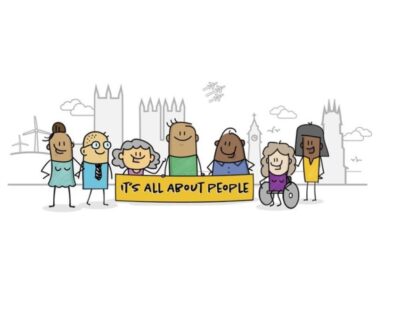Principles for VCSE Engagement and Partnership Working
The Principles for VCSE Engagement outline how NHS England/NHS Improvement and the Voluntary and Community sector and Social Enterprises should work together to ensure that partnership working and co-production are fully embedded.
| Principle | NHS England will…. | VCSE organisations will…. |
| Be inclusive and reach into communities | Ensure that its engagement with the VCSE sector is inclusive, engaging with organisations interested in the life course and whole person as effectively as those working to improve the treatment of individual conditions. We will also avoid being too focused on our main national locations of London and Leeds. | Work inclusively with others committed to achieving the same goal. Identify and work with other organisations, including members of the VCSE Health and Wellbeing Alliance, to address the different ways that health conditions affect people’s lives and identities. |
| Challenge inequalities | Work with VCSE organisations to prioritise the voices of those who are otherwise seldom heard | Build a diverse user base and in engagement with NHS England prioritise those whose voices are otherwise seldom heard |
| Demonstrate impact and build the evidence base | Advise and support the VCSE sector to demonstrate how their involvement achieves greater impact and value and use the evidence presented by the VCSE sector. | Evaluate and measure the impact of interventions, beyond user satisfaction; extend our collective knowledge base by sharing, presenting and publishing data. |
| Adopt co-production | Work with the VCSE sector from the outset of programmes as equal partners, following the agreed approach to co-production | Work collaboratively with NHS England as equal partners in helping the health and care system make decisions. |
| Be transparent | Be open about our ambitions, aspirations and any constraints in how and why we are engaging with the VCSE sector | Be transparent about how they can support user involvement, the diversity of those they represent, and the scope of their involvement |
| Challenge and be a critical friend | Provide the opportunity to engage throughout strategy development and delivery of programmes and be receptive and open to supportive challenge | Challenge our thinking, identify ways in which our programmes could inadvertently disadvantage communities, highlight good practice, and help to identify solutions together |
| Working for the same goal | Recognise that the VCSE sector are essential partners in helping us to meet our obligations through the Equality Act, address health inequalities and ensuring that our programmes meet the needs of the most disadvantaged at the sharp end of the inverse care law[1]. | Recognise that NHS England are working for similar goals – better health and care for all communities. We can achieve much more in partnership. |
[1] The inverse care law is the principle that the availability of good medical or social care tends to vary inversely with the need of the population served. Proposed by Julian Tudor Hart in 1971, the term has since been widely adopted.



